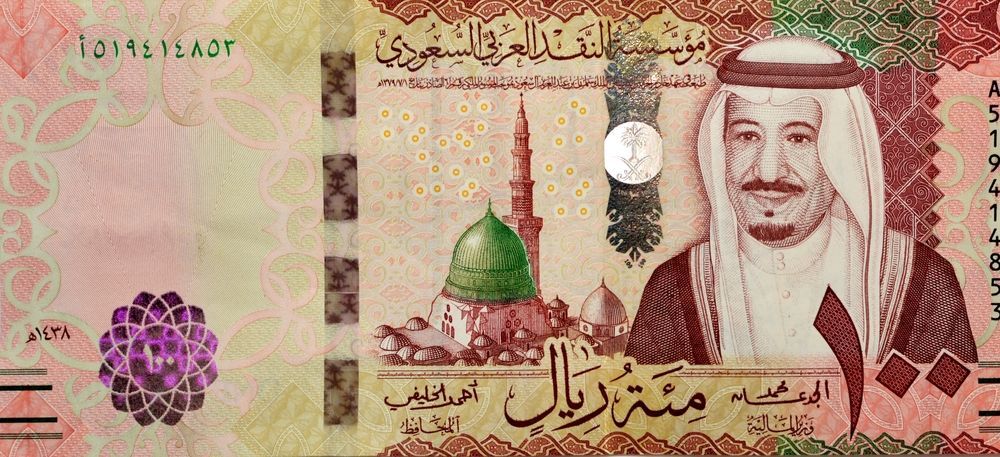Dubai Health Authority achieves ACGME-I Accreditation
The Dubai Health Authority (DHA) announced that it has obtained institutional accreditation from the Accreditation Council for Graduate Medical Education (ACGME-I) to accredit 32 training programmes in various medical specialties over the next four years.
Dubai aims to improve its standard and offerings of postgraduate medical education and increase the number of residency places for local physicians to undertake specialist training. In December 2022, a high level delegation from the Accreditation Council for Graduate Medical Education (ACGME-I) of the USA met with representatives of the Dubai Health Authority (DHA) and senior officials from the public and private health sector in Dubai in order to discuss the accreditation for the 32 training programs agreed in July 2022.
The Role of the Dubai Health Authority (DHA)
The DHA is the medical regulatory authority of the Emirate of Dubai and is responsible for the registration of medical and healthcare practitioners, the issue of licences to practise, the registration of healthcare facilities and the oversight of professional standards and education within the jurisdiction of Dubai. It has no jurisdiction in the other emirates which are covered by separate regulatory authorities.
The meeting with the Accreditation Council for Graduate Medical Education, International was lead by Awadh Seghayer Al Ketbi, Director General of DHA who provided an overview of the health services in Dubai, both public and private, and highlighted that the emirate is always keen to implement the best international standards and practices in the health sector in accordance with the vision of His Highness Sheikh Mohammed bin Rashid Al Maktoum, Vice-President and Prime Minister of the UAE and Ruler of Dubai and as per the directions of H.H. Sheikh Hamdan bin Mohammed bin Rashid Al Maktoum, Crown Prince of Dubai and Chairman of The Executive Council of Dubai.
Al Ketbi emphasised that Dubai has made strenuous efforts to acquire prestigious international accreditations for hospitals and clinics and has largely been successful in this effort with some of the highest global accreditations per head of population. It does not however, have internationally accredited training programs.
The meeting was attended by high-level officials from the public and private health sector in Dubai including Fakeeh University Hospital, the American Hospital Dubai and the Saudi German Hospital, private healthcare organisations licensed by the DHA to provide training.
The Accreditation Council for Graduate Medical Education
Founded in 1981 as a non profit private council in Chicago, Illinois, the Accreditation Council for Graduate Medical Education (ACGME) is the body responsible for evaluating and accrediting all graduate medical training programs (i.e., internships, residencies, and fellowships) for physicians in the United States and the institutions that sponsor them, and renders accreditation decisions based on compliance with these standards. This includes programs for both MD and DO qualified physicians.
The ACGME's member organizations are the
- American Board of Medical Specialties
- American Hospital Association
- American Medical Association
- Association of American Medical Colleges
- American Osteopathic Association (AOA)
- American Association of Colleges of Osteopathic Medicine (AACOM)
- Council of Medical Specialty Societies
Each of the above organisations appoints members to the ACGME's board of directors.
In academic year 2019-2020, there were approximately 865 ACGME-accredited institutions sponsoring approximately 12,000 residency and fellowship programs in 182 specialties and subspecialties in the USA. Accreditation is achieved through a voluntary process of evaluation and review based on published accreditation standards.
ACGME accreditation provides assurance that a sponsoring Institution or program meets the quality standards (Institutional and Program Requirements) of the specialty or subspecialty practice(s) for which it prepares its graduates.
ACGME accreditation is overseen by a Review Committee made up of volunteer specialty experts from the field that set accreditation standards and provide peer evaluation of sponsoring Institutions and specialty and subspecialty residency and fellowship programs.
The Accreditation Council for Graduate Medical Education International - ACGME - I
In order to have clear separation between domestic accreditation (ACGME) and the international pilot, the ACGME International (ACGME-I) was created as a limited liability corporation (LLC) of the parent organization, ACGME. Oversight rested with the ACGME Board of Directors, with a specific reporting structure to the Finance Committee to assure that no domestic funds were utilized in the development or operation of ACGME-I.
The ACGME International was started as a pilot project in 2008 upon request from the Ministry of Health in Singapore. which sought a transformational change in its graduate medical education (GME) program in order to reliably produce physicians, in greater numbers, more capable of serving their society's needs.
Over the next 2 years, a concerted educational program was implemented with Singapore's medical educators. Concepts introduced included:
- institutional sponsorship
- Graduate Medical Education Committees (GMECs)
- evaluations of the 6 competencies
- the role and importance of the program director
- accountability of the faculty for resident outcomes
- the necessity of longitudinal data acquisition and use in accreditation
It was an extraordinary undertaking by the Singaporean medical education community, a system that had evolved in the United States for over a century was being adopted in a fraction of that time.
ACGME-I modeled the international standards in a framework similar to those used in the United States. Of paramount importance was the insistence that institutional accreditation was an essential first step. For program accreditation, a fundamental difference was to create a 2-step process of foundational and advanced specialty accreditation.
Foundational requirements provide an educational framework similar to the ACGME Common Program Requirements. Advanced specialty requirements were those governing unique aspects of a specialty. In order to ensure implementation of the educational framework, foundational accreditation must be granted prior to consideration for advanced specialty accreditation. This 2-step process could be completed at the same time, but advanced specialty accreditation was not considered unless the foundational application demonstrated substantial compliance.
The success of the pilot program in Singapore resulted in requests for accreditation services by Qatar and United Arab Emirates. In 2011, the ACGME Board of Directors approved extension of the pilot to these countries, and in 2013 approved the continued operation of ACGME-I as a self-sufficient international accreditor of postgraduate medical education.
Shortly thereafter, expansion into Oman and Lebanon (American University of Beirut) occurred. An eye specialty hospital in Riyadh, Saudi Arabia, was added as well. Citing these expansions of ACGME-I into economically secure environments, the ACGME Board of Directors expressly noted its intent for ACGME-I to serve economically challenged countries too, including Haiti, Panama, Shanghai in China, Kenya, Pakistan, Guatemala, East Jerusalem, and Hong Kong.
The Perceived Benefits of ACGME-I Accreditation
The importance attached to ACGME accreditation by the US Congress as well as the 2 main certifying entities, the American Board of Medical Specialties and the American Osteopathic Association, provide significant motivation for sponsors and programs to seek ACGME accreditation in the United States.
In the international sphere, however, there is no similar requirement. ACGME-I is contacted when there is a perceived need for quality improvement, desire for international recognition, or another institutional motivation. Though perhaps not articulated, each of these reasons connect directly to the needs of patients and society.
The most immediate effect of ACGME-I accreditation has been felt by the trainees themselves. In some places, this manifests as an emphasis on clinical experience and graduated responsibility, as opposed to service obligations that carry little educational value.
Much of the benefits to resident physicians can be summarized as structure—with a road map and milestones to knowing what a person is to learn, when supervision is necessary, where to turn when help is needed, and how to resolve grievances with program or institutional leadership. Residents become valuable team members and learn the value of team-based care.
Graduating from an ACGME-I accredited program has also led to eligibility, in many circumstances, for subspecialty training when not available in one's own country.
The Limitations Faced by ACGME-I: Accreditation Not Certification
The words “accreditation” and “certification” as used internationally often conflate these two distinct processes. However it must be recognised that the ACGME I specialises in creating effective and accredited programs for educating physicians but has no international board certifying agency to assess a physician's performance.
The ACGME I focuses on organisational qualification and provides methods for local and regional institutions to judge suitability for medical staff membership. It sets the methods used to evaluate individual trainees. It does not, however, judge each graduate's performance. Each country therefore requires its own certification organisation to evaluate physicians' performance.
Since its origins in 2008, the ACGME-I has developed an international accreditation model which enforces high standards whilst providing flexibility for cultural and societal norms. When institutions transition to this system of education, there are benefits but also challenges in terms of tailoring programs to local culture, ethical values, disease prevalence and scope of medical practice.
The ACGME - I and the DHA
Dr. Wadeia Muhammad Sharif, Director of Medical Education and Research Department at DHA highlighted the role of international accreditations to help facilitate the provision of internationally recognised standards of care and medical training.
The signing of the agreement between DHA and (ACGME-I) opens the door to create 32 specialized and accredited programs in Dubai over the next four years. This is expected to contribute to increasing the number of graduate medical education programs in medical specialties aligned with Dubai's aspirations and requirements for its present and future health sector, specifically:
- clinical informatics
- public health
- genomics
- aviation medicine,
Dubai aims to become a global leader in
- medical tourism
- medical education
- research
- scientific innovation
The DHA aims to graduate national and resident physicians in greater numbers and with standards equivalent to those of the USA from the public and private sectors to supplement the health system which is currently heavily reliant on expatriate medical staff.
Dr. Wadeia explained that the first programme accreditation phase will include six medical specialties:
- internal medicine
- general surgery
- family medicine
- emergency medicine
- obstetrics and gynaecology
- diagnostic radiology.
The President and CEO of ACGME-I, Dr. James Arrighi, stated that the signing of the cooperation agreement with the DHA is in line with achieving the council’s vision to develop health care and advance the quality of training and medical education through accreditation.
He added "We are working to protect the interests and rights of the trainees and develop the quality of training, education, research and professional practice in an effort to benefit the community served by our accredited programmes and the young physicians who graduate from them."
Medical Jobs in Dubai's healthcare sector
Dubai has a modern and well equipped healthcare sector with distinct private and public spheres. Hospitals and clinics in Dubai recruit highly qualified and experienced fully trained specialists in primary and secondary specialities including family medicine. Candidates considering jobs in Dubai are invited to register a CV and contact us to discuss opportunities. Jobs currently advertised can be viewed on line and applications made by submission of a CV.
To obtain professional registration with the DHA, you will need a DataFlow Report which verifies your qualifications, current professional standing and practice experience and you may be required to take a prometric examination.
Further information about working in Dubai's medical sector can be reviewed here.
Share this post on Social Media
Leave a Comment
Other Blog Posts
Sign up for our newsletters with details of new job opportunities, news, insights and tips to power your career.
Join Our Community
Useful links
Looking for something?
Policies & Accreditation
Powered with ❤️ by Shazamme © Copyright Odyssey Enterprises Ltd 2024 All rights reserved











